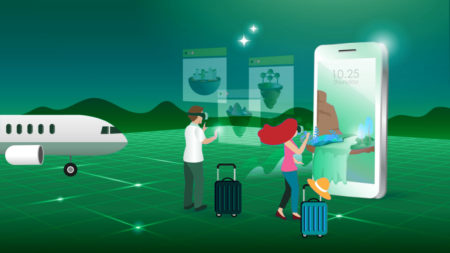In both the Web 1.0 and Web 2.0 eras, the primary engagement tool for businesses operating online was the traditional website. Here, users could learn more about an organization, find help, book services, and access social platforms, too, but we all know that.
Today, the website is still the most crucial gateway for most organizations in the digital space and is recognized as a marker of success in terms of design, visits, and ranking. However, the Metaverse could change this. Of course, as with all Metaverse predictions, this is a prediction. Yet, hypothetically, the website could soon become a memory, sitting alongside CDs and analog TV in the annals of tech history. And here’s why.
Time For a Rethink
Fundamentally, a website is a static space. Despite the various technological advances that enable a more immersive experience, users must navigate a 2D interface to find the information they are looking for.
In the Metaverse, user interactions are far more fluid and immersive, whether through full or partial immersion, or via VR (virtual reality) or AR (augmented reality). Metaverse technologies enable users to step inside a world created by a brand rather than simply view the offering from afar. However, it’s about how these spaces are accessed, and where they are accessed, that could spell the end of the website as we know it.
Most brands and businesses will use an existing Metaverse platform, such as Decentraland or Roblox, to host their channels. Why? Because these platforms turn the ranking game on its head. Instead of competing for space, companies can abandon their websites and host themselves on another existing platform.
This means that users need only know the credentials required to find a specific organization. As well as saving vast amounts in development and maintenance costs, consumers are rewarded with easy access to more brands more quickly.
Of course, some organizations may decide to go it alone and create dedicated Metaverse spaces. However, the entry point will change, and the requirement for a full-fledged website will likely diminish. So, what will replace this gateway?
Long Live the Social App!
Mobile apps and social media streams will likely endure in the Metaverse. While a dedicated app provides users with a specific entry point for a business and will continue to be a valuable link to wherever that business has a presence, social media may be more critical.
Although we have discussed how social media will likely evolve in the Metaverse, there is no doubt that it will endure. Consequently, businesses will probably continue to use social media as a promotional tool that includes information on how users can access their Metaverse spaces. However, this encourages reliance on third-party super sites rather than a dedicated business website.
A New Career Path
So, what does this mean for web developers? Well, the Metaverse will create new job opportunities for many. However, it will also force some existing professions to adapt.
Web developers could well be at the top of this list. Yet, this isn’t necessarily a bad thing. The skills used in web development are transferable to the Metaverse, and the speed of development is such that web developers could become busier instead of losing work.
Want to compete in the Metaverse? Subscribe to the My Metaverse Minute Channel:









